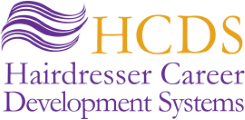Financial and Retirement Planning
You work hard for your money–
make your money work hard for you
One of the pitfalls we face as hairdressers and salon owners is that, more often than not, our jobs do not provide us with pension plans, medical insurance, paid vacation, or other benefit packages compared to other professions. As a result, many in our profession end up living paycheck to paycheck and seldom take the time to think about their futures when it comes to financial and retirement planning, which is a mistake none of us can afford to make.
In spite of these challenges, a career in the beauty industry can be your ticket to financial independence if you plan ahead and set financial goals,because it isn’t how much you earn that determines your ultimate financial security, it’s what you do with what you earn that makes all the difference.
Saving is the Key to Your Long-Term Financial Stability
It is never too soon to start saving for retirement. In fact, the younger you start the better. The compound interest you can earn over forty years, compared to the interest you’d earn over ten or twenty years, is simply extraordinary.
For example, if you started saving for retirement at age 20 and contributed $5,000 a year to an IRA with an 8% average annual return, by age 65 you’d wind up with over $1.93 million—that’s over eight times the amount you contributed! But if you wait until you’re 40 to start saving $5,000 a year, at the same rate you’ll only end up with $365,000 when you retire at age 65.
You see, every year you delay saving for retirement makes an enormous difference in the size of your nest egg down the road. Don’t worry if you didn’t start early, though. The important thing is to start now.
Choosing a Retirement Plan
The easiest way to start saving for your future is to open a Traditional Individual Retirement Account (IRA) or a Roth IRA. With both of these IRA options, you can invest up to $5,000 a year if you are age 49 or under, or up to $6,000 annually if you are age 50 or above. Keep in mind that these numbers will vary due to changing tax laws,consult with your accountant or financial planner. If possible, try to invest the maximum allowed contribution in January every year to maximize the interest you’ll earn on your investment. Even if you can only invest $50 or $100 each month, do it. The power of compounding interest, over time, will make your money grow more than you could have ever imagined.
Now here is a comparison of these two popular IRA options to help you decide which one might be best for you:
Traditional IRA
| Advantages: |
|
| Disadvantages: |
|
Roth IRA
| Advantages: |
|
| Disadvantages: |
|
There are also other options for setting up an IRA account such as an IRA certificate, where you can invest fixed amounts for a predetermined amount of time called a “term,” at a fixed dividend rate. Consider speaking with a financial advisor to determine which plan will work best for you.
If you are a salon owner, you might also think about offering an IRA package to your staff. Setting up an IRA for your employees provides greater tax savings for you and is a great incentive that will help you attract top quality hairdressers.
Don’t wait any longer to start planning for your financial future. Learn to save your money, stay out of debt, protect your good credit, build a history of job stability, invest in your skills through knowledge, buy your own home or condo, open an IRA, and read information on money management and financial planning.
Although you may not have access to the same benefits other professionals do, you do have a strong earning potential when you take time to develop your skills and create a demand for your services. A top professional hairdresser will always be in demand, even during a recession. You control your own financial destiny and opportunities. The sky is the limit.
To learn more about financial planning, I encourage you to check out the following websites:
www.bloomberguniversity.com
www.alanhaft.com
You’ll also find more information about financial planning on the HCDS website, www.hcds4you.com, under articles of interest.
Additional resources
To learn more about Hairdresser Career Development Systems and how we can help you move to the next level in your journey—personally, professionally, and financially—please call toll free (800) 390-4237 or visit www.hcds4you.com.


My name is equity release from USA. I am interested in your writing. Some of your posting are good, I can say, best. Can you please tell me how to subscribe to your blog post online?
Thank you,go to http://www.hcds4you.com/blog
Just go to my home page and click Jon’s blog. Thank you for your interest.
Jon
Everyone here knows how important Financial and Retirement Planning is. But how much of your plan has actually worked to reach closer to your financial goals? In other words, what are the results so far?